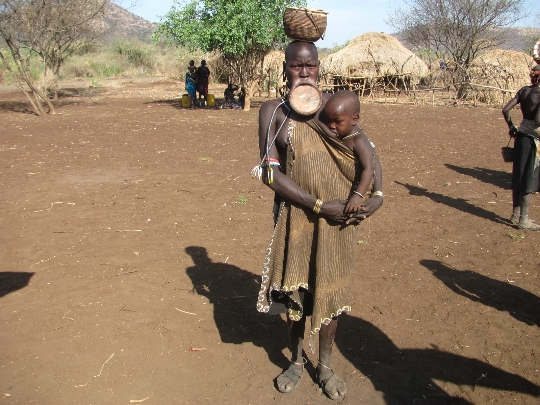Ethiopian traditions

Ethiopia is called the Museum of Nations by ethnologists and historians. About eighty nationalities live on the scorched earth, each of which has its own customs, crafts and even language. The literary work of Ethiopians originated at least two millennia ago, and in ancient monasteries not only icons were painted, but also priceless manuscripts were created. Ethiopia's traditions were formed on the basis of the biblical commandments, and its culture was determined by a combination of the world's most important religions, which found refuge in the highlands scorched by the sun..
Invincible and beautiful
The history of the country is full of ups and downs, tragedies and confrontations. For many centuries, powerful empires, among which were Islamists and European colonialists, nomads and fascists, tried to conquer it. Having resisted external forces, the culture and traditions of Ethiopia were able to remain in their original form, and therefore the mysterious and great Ahmar kingdom remained so in the coming millennium.
Obelisks erected in the 4th century BC are considered the most famous monuments of the ancient Ethiopian state of Aksum. Since then, the Ethiopian tradition of erecting magnificent stone buildings continued to live in the stone churches of Lalibela, carved in red rocks, and in the castles in Gondar..
Without knife and fork
Once at the table in an Ethiopian house, an inexperienced traveler may even get confused: it is not customary to eat with the help of devices here, and the usual knife and fork are replaced by the locals with "injera". This special cereal flour flatbread has a porous structure and perfectly captures a small portion of any meal served. There are both vegetables and meat on the table, but the degree of spiciness of the dish should always be checked with the waiter or hostess..
A nice tradition, when counterparts feed each other from their hands, serves as a gesture of special affection for a person. By the way, Ethiopians always wash their hands before starting a meal. This is considered a sign that a literate and civilized person is sitting at the table. It is customary not to get up from the table too full. According to the Ethiopian tradition, hunger fosters willpower and resilience, and therefore the inhabitants of the country from childhood learn to do without food and water for a long time..
Family values
Children are the most important people in Ethiopia. Up to two years old, they try to breastfeed babies and not leave them alone for a minute. Christening takes place on the fortieth day after the birth of the boy and on the eightieth, if a girl has appeared in the family. That's when the child gets a name. Previously, they do not do this in order not to give evil spirits the opportunity to penetrate the consciousness of a baby who has not yet received God's protection..



